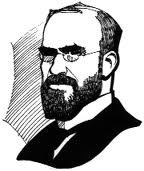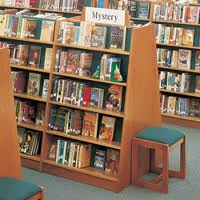To Dewey or Not to Dewey
Actually, that is not the question. For libraries that have embraced approaching their shelves like a bookstore and taking a customer-centric approach, the question was more one of implementation rather than whether or not to ditch Dewey and be like a bookstore.

As the book environment changes, schools and libraries are finding new ways to be accessible to their users. We interviewed Holli Buchter, District Librarian of the St. Vrain Valley School District in Longmont, Colorado to share her insights on the process of converting her library to resemble the subject approach of a bookstore.
The "Anythink" libraries of the Rangeview Library District just outside of Denver provided the inspiration. About forty minutes from St. Vrain Valley, Holli and her colleagues toured a branch that had transitioned to the bookstore model the year before Red Hawk Elementary School opened. "The part of the library that impacted me the most was the arrangement of the picture books," she recalls. Like most libraries, St. Vrain Valley had arranged the books by the author's last name. "In Anythink Public Library, they were arranged by subject, providing seamless transitions between searching in a library system and Internet searching."
Consequently, she piloted the program at Red Hawk and has been thrilled with the response from the students. "They feel empowered to be able to locate materials by themselves," she explains. "Teachers love it as well--this arrangement makes sense to them." She notes that all of the teachers had come from other schools in the district where the Dewey Decimal System was the standard. Research shows that the teachers "feel this makes more sense for the students and themselves."
It is important to have administrative buy-in for a change of this magnitude. Luckily, Red Hawk's principal wanted something new and different and supported this classification model. "Opening a library like this would not have been possible without 100% of the support of the principal and my boss, who gave me permission to fail," she confides. Ms. Buchter quotes John Maxwell: "If you fail, you fail forward." She notes that this "was a conversation we had many, many, many times throughout the process.”
Fortunately, parents were very supportive as well. "The parents love it! They love the fact that their children are empowered, confident searchers and users of information," she notes. "One kindergarten parent thanked me for opening a library where her child can find the books she loves.”
This is all well and good but the proof is in the pudding, or rather, the measurable outcomes. "The results have been phenomenal," she reports. "I am measuring the kinds of books students are checking out and looking for changes in searching habits and patterns due to a different type of arrangement." Check out the statistics here.

Holli has this advice to offer those considering making this change: "Plan for a lot of time to make this happen." Holli gives this measurable input: "I am the District Librarian for 45 schools and I put in over 500 hours classifying titles for this collection alone." The moral, "create the grid first, not at the same time you classify the titles.”
Not only is the process time consuming, there are also difficult decisions to be made without any real industry standards to go by. Does a sports mystery go under Sports or Mysteries? Does a Christmas story set in nineteenth century London belong under Holidays or Historical Fiction? The only guarantee is that no matter where you put many titles, someone will think they should have been put somewhere else!
Another long-term concern is about what will happen to children as they leave an elementary school with bookstore shelving and go to junior high, high school and college libraries organized by Dewey? With kids often reluctant to use the library at those ages anyway, can we afford to confuse or discourage them further?
Clearly there are advantages to be gained and costs to be weighed in making a radical change in the way your library is organized. Do your homework and talk to some of the pioneers like Holli before you decide whether bookstore shelving is for you.
Many thanks to Holli Buchter for sharing her experience so generously!
Flickr of Holli's presentation at AASL: http://www.flickr.com/photos/dmcordell/6291194041/
